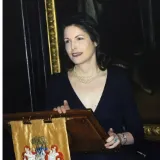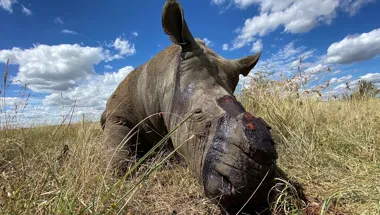
Tracy Alexander FKC
Fellow of King's College London
- Lecturer - MSc Forensic Science
- PhD Supervisor - International Forensics, Wildlife Trafficking theme
- Lead - City of London Police accredited fingerprint lab
- Disaster Victim Identification Co-ordinator, UK Home Office
- President of the British Academy of Forensic Sciences
- Director of Forensic Services, City of London Police (CoLP)
Biography
Tracy Alexander is a Fellow of King's College London, a Lecturer on the MSc Forensic Science, a PhD supervisor for the International Forensics, Wildlife Trafficking theme and the lead for the City of London Police (CoLP) accredited fingerprint lab housed in King's Forensics under a strategic partnership.
Tracy began her career in forensic investigation in 1992 at New Scotland Yard and her current role is Director of Forensic Services for CoLP. She is an advisory panel member and Trustee of Inside Justice and the current President of the British Academy of Forensic Sciences. She has worked in forensic science for 28 years, spending 17 years within the Directorate of Forensic Services at New Scotland Yard as Crime Scene Manager for the Homicide Command and latterly as Head of Forensic Intelligence. As case review specialist at LGC Forensics she headed the cold case investigation unit working on many high profile cases. She is now a Trustee and Advisory Panel Member of Inside Justice and a Forensic lead in the fight against international wildlife crime. King’s Forensics and CoLP have enjoyed a successful research collaboration over many years, currently focusing on wildlife crime. The placement of CoLP fingerprint lab in the Franklin Wilkins Building is the direct result of this successful relationship.
Tracy has been instrumental in establishing links with the international community concerned with poaching and trafficking endangered animals. She is currently working with the Republic of Zimbabwe Police and an in-country NGO (Non-Governmental Organisation) providing training and support for specialist wildlife teams. Tracy and staff from the forensic directorate are also supporting an on-going programme of training with ZSL (Zoological Society of London) with deliveries in Mongolia, Malaysia, Benin, and Niger.
As the UK Disaster Victim Identification Co-ordinator for the Home Office, Tracy will be testing and developing the UK response to mass fatalities both nationally and internationally in readiness for deployment should that be required
Research

International Forensics
The international forensics group has a wide remit to look at evidence from international sources, providing data to support research in criminal justice.

Forensic Science Policy, Regulation & Practice
The Forensic Science Policy, Regulation & Practice group seeks to support policy development and set national standards based on the latest technology.

Tackling illegal wildlife crime through the development of novel methods for fingermark analysis
We have a training project in Zimbabwe ‘the use of fingerprints to combat wildlife crime’. This research project is the next stage to find improved methods.
Project status: Ongoing

Forensic Science Policy, Regulation & Practice
The Forensic Science Policy, Regulation & Practice group seeks to support policy development and set national standards based on the latest technology.
Research

International Forensics
The international forensics group has a wide remit to look at evidence from international sources, providing data to support research in criminal justice.

Forensic Science Policy, Regulation & Practice
The Forensic Science Policy, Regulation & Practice group seeks to support policy development and set national standards based on the latest technology.

Tackling illegal wildlife crime through the development of novel methods for fingermark analysis
We have a training project in Zimbabwe ‘the use of fingerprints to combat wildlife crime’. This research project is the next stage to find improved methods.
Project status: Ongoing

Forensic Science Policy, Regulation & Practice
The Forensic Science Policy, Regulation & Practice group seeks to support policy development and set national standards based on the latest technology.
